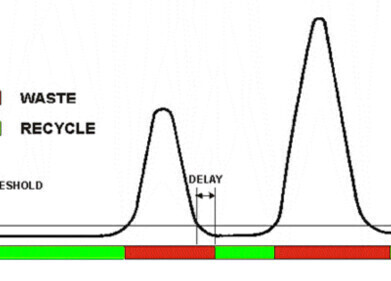-
 HPLC has uncovered evidence of developing resistance to artesunate in border regions of Myanmar and Thailand
HPLC has uncovered evidence of developing resistance to artesunate in border regions of Myanmar and Thailand
HPLC, UHPLC
HPLC indicates Thai-Myanmar artesunate resistance
Oct 11 2010
The drug is used in combination with mefloquine to tackle symptomatic acute uncomplicated Plasmodium falciparum malaria.
In the study, published in Malaria Journal, 150 patients - including 65 females and 85 males - were examined after seven and 42 days.
HPLC was used to detect mefloquine levels in the blood, while liquid chromatography-mass spectrometry was applied to the analysis of concentrations of plasma artesunate and its metabolite dihydroartemisinin.
The scientists note that some ethnicity effects mean that resistance to melfoquine already exists in P falciparum.
But they add that their findings carry support for the suggestion that resistance to artesunate is also developing.
Malaria Journal is edited by Marcel Hommel at the University of Liverpool, while the scientists are from Thammasat University in Thailand and Mae-Sot General Hospital in Thailand's Tak province.
Digital Edition
Chromatography Today - Buyers' Guide 2022
October 2023
In This Edition Modern & Practical Applications - Accelerating ADC Development with Mass Spectrometry - Implementing High-Resolution Ion Mobility into Peptide Mapping Workflows Chromatogr...
View all digital editions
Events
Apr 28 2024 Montreal, Quebec, Canada
May 05 2024 Seville, Spain
May 15 2024 Birmingham, UK
May 19 2024 Brno, Czech Republic
May 21 2024 Lagos, Nigeria













